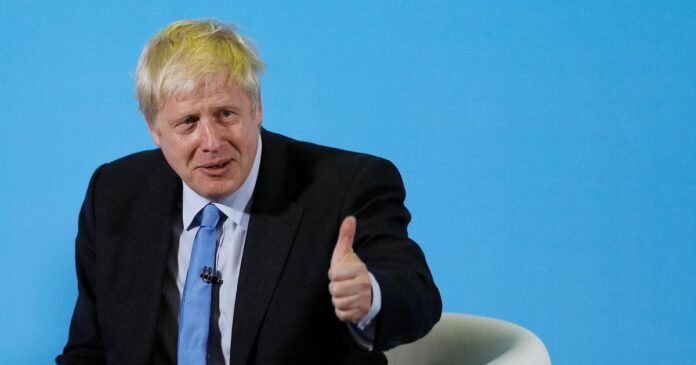Trouble doesn’t seem to be ending for Britain. Previously under the crosshair was Theresa May and now the current PM Boris Johnson. With all the heckling and shoving, the parliament vote didn’t come in favour of Boris Johnson. The loss has led UK PM to ask for a delay in the Brexit departure, which goes against the promise of Brexit by October 31.
U.K. Prime Minister Boris Johnson has asked the E.U. to delay Brexit after the Parliament postponed a decision on whether to back his exit deal. While Johnson still tried to stick to his word, opposing the Brexit delay beyond October 31. Boris Johnson stated that he is forced to take this step and that it is under duress, he has to postpone the Brexit date as previously promised.

Late Saturday, the U.K. parliament in a special sitting voted 322 to 306 in favour of an amendment that delays Boris Johnson‘s plans to exit the E.U. until the end of January 2020. This move makes sure that the U.K. does not depart from the E.U. without ensuring a deal with the E.U. on the scheduled date of departure. Johnson stated in the ParliamentParliament that further delay in the Brexit was terrible for the E.U. as well as Britain and democracy.
The amendment now makes deal conditional on passage of the legislation to implement it, which might take several weeks. Though, this gives lawmakers a second shot at scrutinizing the Brexit departure terms while the bill is in Parliament. Thousands of anti-Brexit demonstrators have welcomed it. Protesters thronged the Parliament Square wearing blue berets with yellow stars symbolizing the E.U. flag, demanding another referendum.

Boris Johnson in a letter sent has acknowledged that there’s no other way but to ask for a Brexit extension- as asked by his opponents. The letter to the lawmakers states, “It is quite possible that our friends in the European Union will reject parliament’s request for further delay.”
What was in the Brexit deal?
While the citizens of the E.U. and the U.K. will not need visas for short visits, E.U. citizens will lose the right to live and work in Britain, and vice versa. While E.U. citizens currently in Britain, and the Britons in E.U. countries, won’t lose their rights to live and work in those areas.
The key hurdle ever since the Brexit talks began was a way to keep goods and people flowing freely across the Irish border – the only land border between the U.K. and the bloc. The open border is said to be vital to the regional economy and underpins Northern Ireland’s peace process.
/cdn.vox-cdn.com/uploads/chorus_asset/file/13737562/UK_IRELAND_Border.jpg)
Theresa May’s rejected deal had a policy known as the backstop. It kept Northern Ireland in harmony with E.U. trade and customs rules to eliminate the need for border checks. But that was opposed under the pretext of damaging Britain’s ability to strike new trade deals around the world. While Boris Johnson insisted on all of the U.K. – including Northern Ireland – leaving the Union. This makes border checks and tariffs inevitable.
The proposed deal kept the Northern Ireland aligned with the rules of the EU, which made the border checks redundant and also eliminating customs checks at the Irish border. Instead, customs checks and tariffs levied would be on Britain goods for the E.U. entering Northern Ireland.

